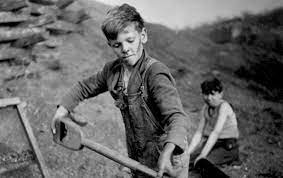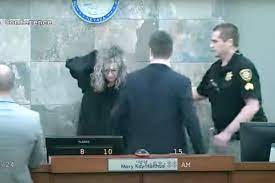Increased Child Labor Cases in the US Lead to States Loosening Laws on Hiring of Minors
Some US states are loosening the restrictions on hiring children despite an increase in incidents of exploitation. At the age of 14, workers in industrial laundries put in up to 35 hours per week of work on top of education.
At least five states have changed their teenage employment laws, with Arkansas being the most recent to do so in August.
However, such changes occur at a time when the Labor Department reports a 69 percent increase in the number of adolescents working illegally since 2018.
The removal of the Arkansas work permit requirement for minors “might sound like it’s not a big deal, but we actually think it’s a pretty impactful law,” according to Reid Maki, coordinator at the Child Labor Coalition.
The necessity for a work permit “should not have been removed,” he told AFP, adding that eventually this would enable some teenagers to get in positions they really shouldn’t be in.
In response, a representative for Republican Governor Sarah Huckabee Sanders said that it is “still illegal for minors to work dangerous jobs.”
The Sanders spokeswoman, a former White House press secretary for former President Donald Trump, said, “This bill simply makes it legal for anyone in Arkansas aged 14 and up to work without a permission slip from the government.”
However, others worry that safeguards are being compromised. Maki points out that the Labor Department only has 800 inspectors to monitor the 11 million employers in the nation.
WITH FEDERAL PROTECTIONS, “INCONSISTENT”
According to a study by the Economic Policy Institute (EPI), a left-leaning research tank, at least 14 states have approved or filed legislation over the last two years that weakens the rules regulating child labor.
According to Nina Mast, writer of the paper, “they do that in a variety of ways, either by extending hours, by expanding the industries in which young workers can work at, or by allowing them to serve alcohol.”
The research also noted that five states—Arkansas, Iowa, Michigan, New Hampshire, and New Jersey—had gone so far as to modify their laws.
State-level legislation must be more protective than the federal minimum standard, despite the fact that federal statutes protecting child labor protection date back to 1938.
A bill that was approved in Iowa in May decreased the age requirement for personnel who sell alcohol and removed limitations on hazardous jobs.
According to Governor Kim Reynolds’ statement in a news release, this is apparently intended to help “young adults develop their skills in the workforce.”
However, according to EPI, it is “one of the most dangerous rollbacks of child labor laws in the country.”
Officials from the Labor Department said in a letter from August that several parts of the Iowa child labor statute “appear to be inconsistent” with federal child labor laws.
This occurred when elected Democrats opposed to the measures contacted department executives.
In addition to allowing children to undertake certain risky occupations, the modifications also allow individuals under the age of 16 to work until 7 p.m. on school days until 9 p.m.
Teenagers who are 14 years old and older are permitted to work up to 18 hours a week, or three hours per day, throughout the school year under federal law.
“The right protection,” Maki said.
CURRENT PROBLEM
“The current employment situation that we’re in, with a tight labor market, has really exacerbated a push by employers to be able to exploit younger workers,” said Mast, a coauthor of the EPI paper.
Companies are “capitalizing on this current moment to push to erode protections,” she said. But that endeavor is not brand-new.
Maki emphasized that in order to provide the labor market with employees, safeguards shouldn’t be compromised.
“A child’s or an individual’s lifetime earnings really depend on whether they go to high school and go to college,” he added.
Amid an inflow of often unaccompanied migrant children, President Joe Biden’s administration declared its intention to intensify the battle against illicit child labor in February.
At least 102 juveniles between the ages of 13 and 17 were employed by sanitation contractor Packers Sanitation Services, according to a $1.5 million punishment levied by the Labor Department the same month.
Marty Walsh, the labor secretary at the time, remarked, “This is not a 19th century problem; this is a today problem.”







